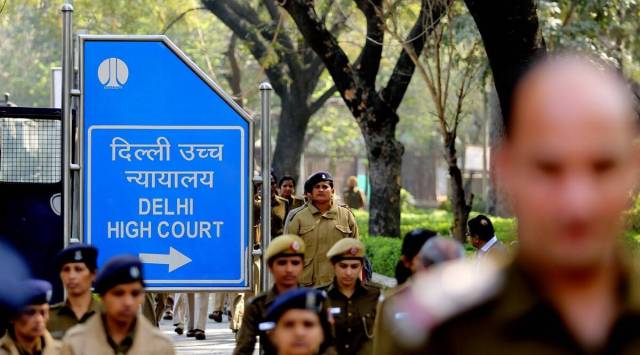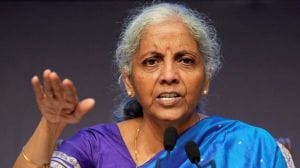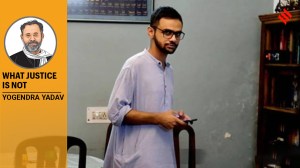Stay updated with the latest - Click here to follow us on Instagram
Ensure career counselling to help Class XI, XII students make informed decisions, HC tells Delhi government
The Delhi High Court was hearing a plea of a student, who was unsuccessful in securing admission to DU colleges, a failure he attributed to improper or lack of career guidance by the school.
 The high court opined that the prayer for CBSE to cancel affiliation/accreditation of the school “lacks foundation and is untenable”. (File)
The high court opined that the prayer for CBSE to cancel affiliation/accreditation of the school “lacks foundation and is untenable”. (File)Emphasising that career guidance for Class XI and XII students is crucial, the Delhi High Court recently directed the Delhi government to look into a system of counselling in schools to assist students in making informed decisions.
A single judge bench of Justice Sanjeev Narula in its November 24 decision said, “Respondent authorities, who supervise education imparted to students, must step in to ensure that there is appropriate system of counselling in schools, career guidance programmes/career fairs, to assist students. If students are made aware of admission policies of different universities, it could only help them in making an informed decision regarding their subject choices.”
The court also said that though advocate Unmukt Gera, counsel for the government of the National Capital Territory of Delhi (GNCTD), stated that such systems must be in place, he was unable to “readily cite the same”.
The high court thereafter directed the Delhi government’s education department to examine this issue in “consultation with experts in the field” and in case of any “lacunae” which is required to be filled in, “they may do so by issuing appropriate directions to schools”.
The high court was hearing the plea of a student, who studied at Bal Bhavan International School, Dwarka, and was unsuccessful in securing admission to colleges at University of Delhi, a failure he attributes to improper or lack of career guidance by the school. He claimed that when he opted for Mass Media Studies and Physical Education in Class XI and XII, he was not cautioned that these subjects are not considered ‘Main’ subjects by DU and are instead treated as ‘Elective’, attracting a penalty of 2.5% deduction of marks from aggregate marks for selection in DU colleges.
The plea prayed for a direction to the Central Board of Secondary Education (CBSE) to take action against the school, including but not limited to the cancellation of its affiliation/accreditation. The plea further sought a direction against the school to adequately compensate the student and other students for the prejudice caused to them on account of its acts/omissions. The plea also sought a direction to the University of Delhi to clarify its stand on the treatment of subjects for the purpose of admission and to favourably consider the application of the student.
The student also sought the intervention of CBSE and GNCTD to “ensure proper dispensation of information and guidance to students at the time of subject selection in Class XI and XII”.
The high court opined that the prayer for CBSE to cancel affiliation/accreditation of the school “lacks foundation and is untenable”. It said that “improper career counselling to some students cannot be a ground for de-affiliation/ de-accreditation”, in the absence of any law which provides for such a penalty.
Rejecting the prayer for compensation to the student, the high court said that the same cannot be entertained due to “highly disputed facts” of the case. The school had argued that the guidelines issued by CBSE are “diligently followed and students in Class XI are free to opt any subjects prescribed by CBSE”.
The school said that the student voluntarily opted for the subjects after consulting with his parents. “All of the subjects taught/available in the school are recognised by CBSE and there is no basis for the school to consider some subjects more favourable than others. The school does not dissuade students from opting any subject,” the school said.
Considering these submissions, the high court held that there is no basis for it to hold that the choice exercised by the student was not voluntary or was exercised under persuasion.
The high court further held that the student’s contention is “far-fetched” and “exhibits a very orthodox approach towards education centred around scoring marks”.
Holding that scoring of marks cannot be the sole criteria for selecting a subject, the high court opined that the school had a “different approach of holistic development of students and would encourage them to select subjects based on their aptitude”.
With respect to DU’s stand on the issue, the high court said, “Petitioner applied to DU in the year 2020 and since then, Common University Entrance Test (Under Graduate)-2022 has been introduced this year for admission to graduate applications under Common Seat Allocation System-2022 based on CUET (UG)-2022 scores. The prayer is thus, infructuous keeping in mind the current admission process of DU.”
The high court said that it has no reason to direct DU to “dilute its standards for admission”, as fixing the eligibility criteria is a policy decision and lies within the exclusive domain of the university.
Noting that the student was admitted to another college and was continuing his education, the high court said that no foundation or legal right was demonstrated by him for the court to issue any directions to DU on the admission procedure followed by them for intake of students under the erstwhile admission regime.







